NA Students Interpret and Act on the Pledge of Allegiance
NAI Students stand to face the flag during the Pledge of Allegiance.
October 15, 2021
For over a century, many students from schools all across America have stood for and recited the Pledge of Allegiance on a daily basis. However, many school districts–including the North Allegheny (NA) School District, as per absence of any mandates within the code of conduct–do not mandate this practice, resulting in variance in students’ protocols during the pledge.
Whether or not students stand, place their hands over their hearts, or recite the pledge is currently up to them, but it isn’t always clear why they make the decisions that they do. One fundamental factor that shapes students’ behavior is what the Pledge of Allegiance means to them.
Sophomore Isabella Gauntner (she/her) described the pledge as “a big representation of our country,” and a “symbol for the people that are fighting for us, and have died, and fought to make America what it is today.”
In light of this interpretation, when the pledge is called, Gauntner stands, places her hand over her heart, and recites the pledge under normal circumstances. (However, since she’s taking a Latin course, she recites it in her head since she does not know the words in Latin.)
When asked to explain why she does so, Isabella stated, “To me, it’s like ‘honor and respect for the people who, you know, who are putting their lives at risk just so I can, like, do whatever I want.” She also mentioned that she has (and had) family who serve (and had served the country in some way (Police officers, military, firefighters, etc.).
Guantner sees the pledge as a way to honor and acknowledge those who fight or have fought for the United States, and she herself feels the need to offer said respect.
Sophomore Jayna Cole (she/her) provides an alternative perspective. Her interpretation of the pledge can be summed up into three parts, but her decision to sit and stay silent is based on the first of the three–the pledge representing loyalty to the country.
Cole chooses to remain sitting and silent during the pledge, though she does make sure not to make any noises that could distract others who choose to recite the pledge.
In an interview, Cole explained her more recent discoveries of some of the “complexities in America,” like COVID-19, and how she believes they revealed a lot of problems in the country that have been left unattended.
She also mentioned some of America’s history, stating, “Its history with slavery and segregations and discrimination and colonization, and stuff like that–it’s…it’s ugly, and it still seeps into today’s culture and society.” This is what ultimately led her to decide not “to pledge allegiance to a country’s flag that still has these types of problems, or like, still teaches its kids that ‘America’s perfect’ or ‘America’s fine,’ or ‘America’s a place to be proud of living in.”
Since she views the pledge as a symbol of loyalty to America, Cole chooses to not to stand, place her hand over her heart, or recite the pledge, as she does not want to pledge her allegiance to a country that she believes to have problems left unaddressed, and tries to sell itself as “perfect” or “fine.”
A student’s interpretation of the pledge is usually helpful for understanding their decisions. However, the interpretation, actions, and opinions of Sophomore Ryan Pan (he/him) demonstrate a possible rule-breaker.
When asked for his interpretation, Pan stated, “I think it’s just a way to show our loyalty or patriotism to our country.”
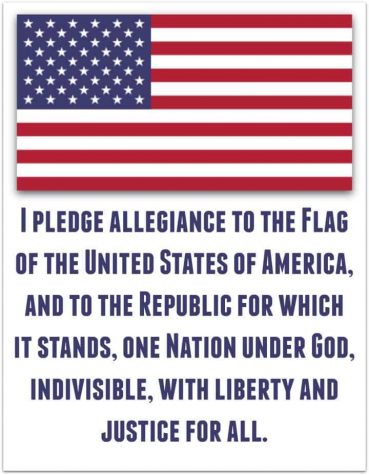
Instead of sitting and staying silent, Pan chooses to stand for the pledge, but his reason for doing so was not to show loyalty.
Pan stated, “It’s really not that difficult to do simple physical movements, but I think it’s kind of important to do these symbolic moves, because, I mean, that’s what you do. You do that for the pledge. That’s just normal.” Pan said he didn’t want to stand out by sitting, and that he didn’t see any point in not doing it.
Additionally, unlike the two before him, Pan does not quite believe so strongly in his interpretation of the pledge, describing it as “kinda useless” at the end of the day, as “someone can just be a citizen without having to do the pledge of allegiance.”


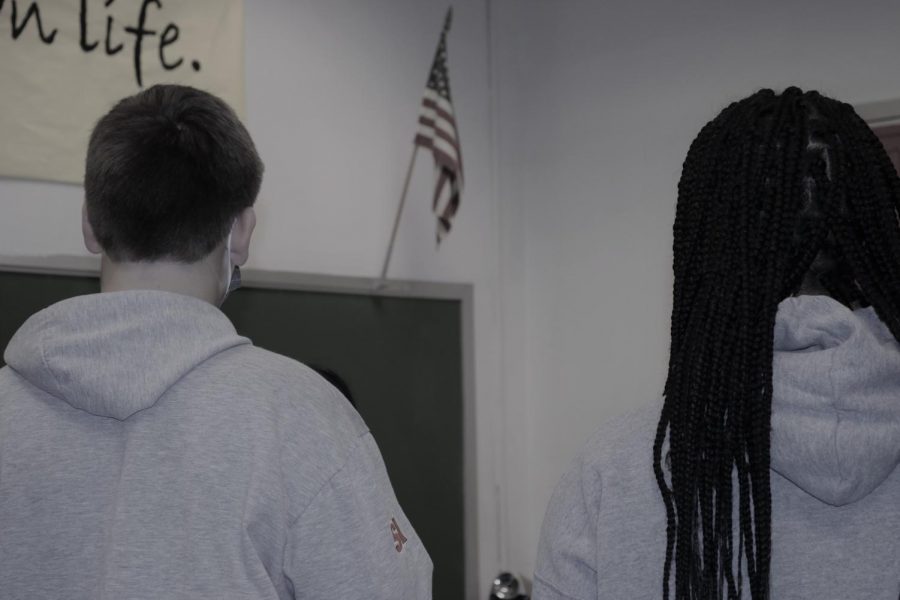
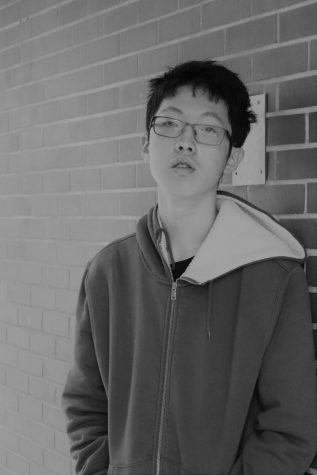
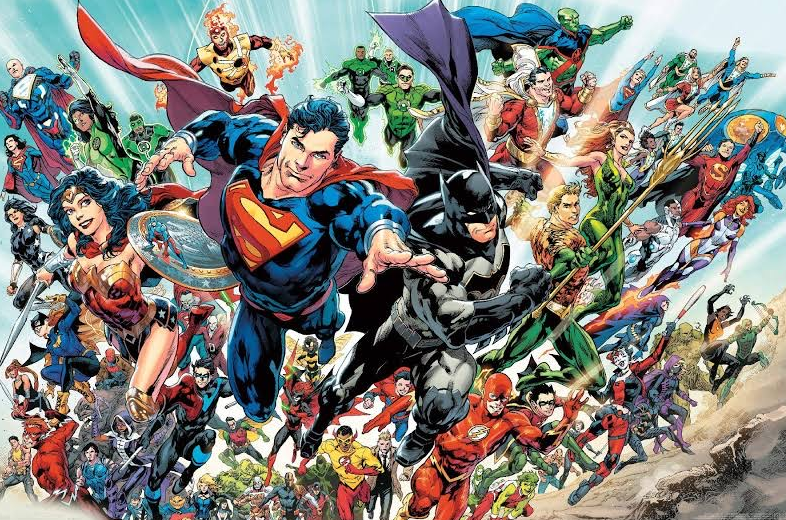





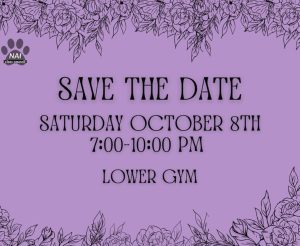


Colleen Morris • Oct 18, 2021 at 8:23 am
Really thoughtful commentary by the interviewed students. We should each take a moment to think about the words we say and the acts we perform.